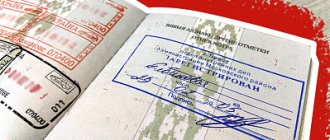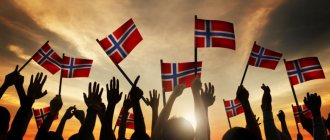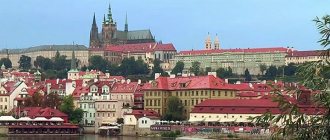A little about Norway
The kingdom of contrasts and thrills. Here the harsh winter is replaced by a surprisingly mild summer, and the views of the mountain peaks are breathtaking. Before you go to work in Norway, you need to find a suitable vacancy. It is not so easy. In addition, most of the options offered involve hard work in fairly harsh conditions. The country's employment market is seriously controlled by the state; getting a job will not be easy. But life in Norway attracts many people from all over the world.
Internship and practice opportunities
Students often choose the Kingdom for an internship or internship, since obtaining a student visa and residence permit takes only 2-3 months. Main areas of internship:
- oil production and oil refining;
- chemical production;
- fish processing industry;
- Agriculture;
- travel business.
The portal graduateland.com contains various internships in the largest companies in the country. Here you can choose the appropriate option and get to know the company you are interested in better. The website globalplacement.com contains useful information on how to design a resume, write motivation letters and choose companies for internships. Going for an internship in Norway means taking care of your future career.

Summer internship in Norway is a great chance for a student to find a good job
Finding work in the country
According to statistics, about 2/3 of employers choose staff thanks to recommendations from friends or personal connections. Advertising is often used in cases where a large number of employees need to be hired in a short time. To find a job in Norway, job seekers have access to all sorts of sources of information.
Through the Internet
You can search for work both before arriving in Norway and while already in the country. If the applicant has already arrived in the “kingdom of the fjords” without knowing who he will work with, he needs to have funds for living, since it is not always possible to find a job right away. There are several search methods. You can use one of them or all of them at once.
Popular sites
To find a job, it is recommended to use:
- finn.no,
- manpower.no,
- jobbsafari.no,
- jobb.tu.no,
- careerjet.no,
- jobbnorge.no.
Here you can find vacancies for Russians, which may not involve difficult conditions.
On the portal of the Norwegian Employment and Welfare Service
NAV has extensive information about the labor market in Norway. In order to combat unemployment, the service works closely with employers, administrative bodies and organizations. The website https://www.nav.no/Forsiden contains information about all vacancies registered by employers. You can subscribe to the newsletter and receive email notifications when new vacancies become available.
Websites of Norwegian companies
This is a fairly effective way to find employment. On the official resources of companies it is possible to find not only vacancy announcements, but also to send your resume directly to the employer and find employment under a contract. On the resources https://www.gulesider.no/, https://www.brreg.no/ you can get acquainted with all the companies in the country.
Through the media
The most popular Norwegian newspapers to start your job search with are the following:
- Aftenposten;
- Dagens Neringsliv;
- Bergens Tidende;
- Addresseavisa;
- Nordlys.
Searching for a vacancy through printed publications often gives the expected result, so do not neglect this option.
Recruitment agencies
Many job applicants in Norway use the services of recruiting agencies, among which the most popular are Adecco, Academic Work, Nokut, and Randstad. Employment is often offered on Svalbard, on oil platforms, that is, employment in places where work is not in high demand among local residents due to difficult conditions.
Receiving a grant
Studying is an excellent opportunity to integrate into the country without knowing the language or having qualifications. Every year the government issues about 1,100 grants. They are designed to cover the costs associated with studying for bachelor's, master's or postgraduate programs. Moreover, foreign students receive the same conditions as Norwegian ones; 40% of the tuition fee is paid for by a grant, and the remaining 60% is provided with a loan from the state. The program organizers can also cover travel expenses.
Description of individual types of earnings
Labor in each specific sector of the country is specific. Before applying for a job, you should carefully study all the details in order to save yourself from problems in the future.
Seasonal employment
Seasonal work is in high demand among citizens from Russia and the CIS countries. The average salary is about 1,600 euros per month (in some regions it can reach 4,000 euros). Therefore, a trip abroad for 3-4 months can bring significant income to your personal treasury. Workers are mainly needed in the summer and autumn, less often in the spring. Labor activities are carried out in greenhouse production and farms.

Employers provide seasonal workers with free housing and food
The unpopularity of this type of income among local residents has led to the fact that employers provide workers with free housing (the condition of which is comparable to European 3-4 star hotels) and food. If there is a significant distance between the provided living space and the work location, management will reimburse the costs of public travel.
This type of work does not require knowledge of Norwegian or even English. It is enough to learn basic phrases (at least in English) to competently navigate among colleagues and managers.
The vacancies are suitable for both men and women. The main requirement for men is a strong physique and endurance. The fair half of humanity can realize themselves as harvesters, greenhouse cleaners, sorters, as well as cooks.
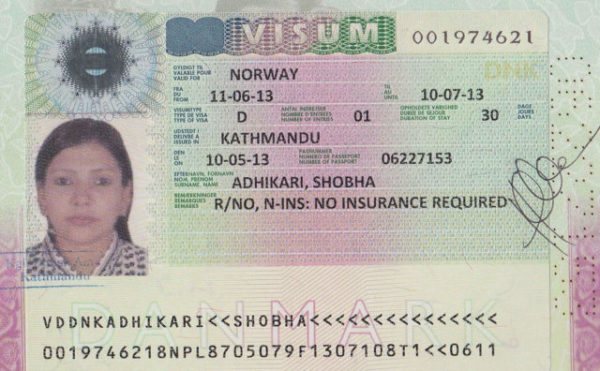
Example of a seasonal worker visa
Social sphere
Norwegian citizens have a high level of social support from the state. Consequently, a lot of personnel are needed, and the low level of salaries and low prestige makes such an industry unpopular among local residents.
Migrant workers can find their place in the field of caring for the elderly, helping to run households for the disabled and large groups of society. Typically, these types of activities are in demand among women. Average income – from 1,000 euros per month.
Fishing industry
Norway needs professional staff from all over the world. When working at fish processing plants, free accommodation, reimbursement for food costs and medical insurance are provided. Persons of any gender under the age of 55 are required. Migrant workers are offered work on conveyor belts, product packaging, and cargo handling activities. The contract is for 6 or 12 months, and the income ranges from 2,500 to 7,000 euros.

Norwegian equipment is high-tech and meets all safety requirements
Oil sector
Working with black gold is the highest paid among foreign citizens. There are many people willing, so finding a job is very difficult. Preference is given to men of strong physique and persons with higher education. Knowledge of the local language is required (only English is suitable for general workers).
The employment contract is concluded for a period of 1 year, and the mercenary must work on a rotation basis for at least 150-170 days. Providing housing and food is the prerogative of the employer. You are also given the opportunity to go to sports facilities and use Wi-Fi networks in recreation areas for free.
Construction
The peculiarity of this area is a relatively high salary (from 6,000 to 8,000 euros), a full package of social guarantees and the opportunity to work above the rate with payment of 150% of the average salary.

Construction workers in Norway have relatively high salaries
Features of working as a doctor
The medical field is the most difficult. Surprisingly, the state gives preference to medical personnel from Murmansk, a northern city in Russia. Norwegian health care institutions place advertisements for vacancies in newspapers and magazines of the city, order advertising in television and audio media.
The average salary is about 350,000 rubles for doctors and at least 200,000 for middle and junior staff. Medical structures do not provide living space, do not reimburse the costs of food and travel to the place of work. You need to take care of this yourself.
Video - How to find a job in Norway
In-demand specialties in 2020
Not only highly qualified specialists, but also ordinary workers can find work in the country - there are few of them in the kingdom. The professions in demand in Norway are as follows:
- doctors and nurses;
- IT developers;
- representatives of the service sector;
- builders;
- social workers;
- cleaners;
- cooks

The fastest way to earn money is considered to be seasonal work, for example, on a farm. The main activity is harvesting. People are hired for several months; food and accommodation are usually paid for by the employer. Also, due to the fact that Norway is the largest oil producer, those who are willing to work hard can get a job on oil platforms. Most often, the following specialists are required:
- general workers;
- welders;
- equipment operators;
- electricians;
- driller's assistants;
- deckhands;
- riding on a drilling rig;
- mechanics.
Such work in oil companies is usually carried out on a rotational basis. The duration of a watch on such a platform is 105-180 days. The work schedule for technical personnel is usually 4 hours every 8 hours, and for household personnel it is continuous, 8 hours a day. There are no rest days during the shift.
To find employment in this industry, you need knowledge of English and Norwegian and specialized education. Since Norway is a leader in the export of fish and seafood, job seekers can offer their services at a fish factory. Here you can get a job in the following specialties:
- packer (packer);
- salting worker;
- warehouse staff;
- loader;
- worker on the conveyor;
- stacker of finished products.
Jobs at a fish factory are also suitable for women. By the way, on job search sites it is noted that you can work here without knowing the language. It is also easy to get a job as a driver. It is enough to know English/Norwegian at a basic level, have a driver’s license for the appropriate category of transport, have no bad habits and be over 20 years old.
But those thrill seekers who would like to work at the lighthouse are unlikely to be able to get a job - all processes here have long been automated, so a permanent keeper is not needed at all. But in Norway there are so-called lighthouse hotels where you can stay. Inside, tourists can expect warmth and comfort: a huge and comfortable bed and windows with a magnificent view of the cold, but bewitchingly majestic sea.
Obtaining a work permit
When an employer is found who is satisfied with the candidacy of a foreign applicant (that is, he is satisfied with the employee’s qualifications and knowledge of the Norwegian language), an application for permission is submitted electronically. It is filled out on the migration management website (UDI). At this stage, you will need to pay a fee of 300-400 euros. The website also allows you to set a date for visiting the Norwegian Embassy.

If the applicant prepares documents for employment independently, then the embassy must bring a list of documents translated by an accredited specialist into Norwegian and English.
Salary rates
This question is relevant for many who want to go to the country of the fjords to earn money. The average salary is 43,380 kronor (NOK), which is equal to 4,730 euros (excluding taxes). The general tax rate in Norway is 30-40%.
The amount of earnings depends on the area of employment. The highest incomes are among workers in the mining industry. Thus, oil workers have 65 thousand crowns. But catering staff receive much less - only 29 thousand crowns. There is no minimum wage in the country provided for by law. Each area has its own standards.
Another nuance: if you compare monthly salaries in Norway for men and women, it turns out that the latter earn less. Although the explanation is quite simple: men work in more difficult jobs that are paid at higher rates. The salary depends on several factors:
- scope of work;
- job title;
- number of hours.
Read also: Visa to Norway for Russians in 2021 How to obtain Norwegian citizenship
Salaries by profession in the country are presented in the table below.
| Job title | Salary, euro |
| Oil and Gas Operators | 6 825 |
| Mechanical engineers | 6 700 |
| Industrial Engineers | 6 050 |
| Programmers | 5 995 |
| Architects | 5 950 |
| Pharmacists | 5 900 |
| Teachers | 5130 |
| Nurses | 4 835 |
| Social workers | 4 130 |
| Housekeepers | 3 820 |
| Cooks | 3 310 |
| Waiters, bartenders | 2 820 |
Taxation in the country
The current system in the country can be called classic for European powers. Direct and indirect taxes are levied and can be established at the federal and municipal levels. The main payment to the treasury is personal income tax. Income tax in Norway must be paid by Norwegians, migrants, and stateless persons - in short, all employed and self-employed persons who receive money for work in the kingdom.
The payroll tax used to be 27%, but was reduced to 25% in 2021 and by another 1% last year. If the annual income is less than 164 thousand CZK, a zero rate applies. For earnings above the minimum level, a progressive rate is established. The higher the income, the higher the deduction amount. You also need to pay a social tax - 8.2%. If earnings are below 55 thousand crowns per year, then the person is exempt from paying this amount.
The country's economy and salary levels
The Kingdom of Norway is one of the most prosperous countries in Europe. It ranks first in the world in terms of the number of dollar millionaires per capita. Only about 5 million people live here, so the issue of attracting foreign labor is relevant here.
The main distinctive features of the Norwegian labor market are low unemployment (up to 3%) and a large number of state-owned enterprises.
There is no minimum wage in this country. According to statistics, the average salary in Norway is about €4.5 thousand. This is one of the best indicators in Europe (along with Switzerland and Luxembourg). The difference in wages between women and men is about 15% in favor of men.
Labor migrants from the countries of the former CIS with high qualifications can qualify for a salary of €3.5 thousand per month, and with low qualifications - from €2 thousand. An experienced engineer receives an income of €4-5 thousand per month. However, it should be taken into account that prices in Norway are noticeably higher than the European average. Everything is expensive: food, communications, transport, housing. True, this stops few people, because the prices here are such because of the high incomes of the population.
Taxes in Norway are high even by European standards. The tax scale depends on many circumstances - income level, area of residence, marital status. On average it turns out 30-35%. However, taxes allow Norwegians to maintain high social standards.
If they are invited to work permanently, they are issued a residence permit, and after 3 years of stay in Norway - permanent residence. However, they have the right to move immediately with their family members.
The system of control over labor relations and social security is especially developed here. Employees of Norwegian companies can be sure that their salaries will not be delayed or fired due to the presence of other applicants for their job. Often, employers provide their specialists with housing, food, transportation and insurance.
Working conditions
In the kingdom, the working day usually starts at 8:00 and ends at 16:00. In case of illness, an employee may not go to work for up to 3 days - just notify the employer. But you can use this right no more than once every 12 weeks. If the illness continues longer than this time, then you need to go to the doctor and apply for sick leave.
Such a document is issued for a period established by the doctor and is paid in full: the first 14 days are covered by the employer, the subsequent days are covered by the state. If an employee is sick for more than 5 weeks, the social service sends him and the employer a letter demanding an explanation of the reasons and their elimination.
The procedure for official employment in Norway
Before you get a job, you should understand all the “paper” details. The official registration procedure comes down to two main points: obtaining a work visa and permission to work in the country.
Requirements for candidates
The applicant must:
- have a residence permit or apply for one; in this case, you can start working even before receiving a temporary residence permit);
- have a formal offer from a local employer;
- have higher education or special professional training;
- apply for a vacancy that corresponds to your existing specialty;
- if necessary, undergo a qualification confirmation procedure.
In case of dismissal, the applicant is given 6 months to find a new job. You are also allowed to move your family and apply for permanent residence after three years.
Applying for a work visa
This process is directly related to obtaining a work permit (that is, a residence permit) in the fjord country. A work visa to Norway for Russians in 2021 is a necessary legal document issued to citizens who do not otherwise have the right to work full-time in the country. To do this, you need to prepare a package of documents and contact the diplomatic mission of the kingdom. They will also tell you how much a work visa costs. Currently, the consular fee is 35 euros.
What documents are needed
To ensure that employment in Norway is legal for Russian citizens, a visa is required. To do this, you need to prepare 2 photographs, make copies of all completed pages of the international passport, have a letter from the employer, confirmation of the availability of funds to pay for accommodation throughout the entire period of stay in the country or a sponsorship letter, issue a health insurance policy and attach a document confirming the fact of payment consular fee.
Who doesn't need permission

There are exceptions to the rules. If a person will stay in the country for no longer than 90 days, the following categories do not need to obtain a permit.
- Entrepreneurs with businesses in the country.
- Scientists, lecturers.
- Engineers and technicians located in Norway to carry out preventive and repair work on equipment.
- Those on a business trip.
- Professional athletes.
- Officials.
- Journalists.
- Guides, tour guides as part of tourist groups.
- Members of international crews of trains, buses, airplanes, ships.
Persons who do not intend to work in Norway for more than 3 months are exempt from the need to obtain a residence permit.
The nuances of obtaining a residence permit
This document is important for employment in the country. Before you receive a residence permit in Norway, you need to have a visa in hand. You can become a holder of a residence permit in the following ways:
- business immigration – the basis for obtaining a document will be the registration of an enterprise on Norwegian territory;
- employment - for this you need to go to work in Norway from Russia and submit the necessary papers to the diplomatic mission;
- obtaining an education – enrollment in an educational institution in Norway gives the right to obtain a residence permit;
- purchasing real estate in the country;
- family reunification.
In any case, there must be a justified reason for moving and obtaining a residence permit in the kingdom of the fjords.
How can a foreigner find a job?
To qualify for a work permit in Norway, you must receive an offer from an employer. That is, the first step is to search for a vacancy. It can be carried out independently or through agencies engaged in the employment of foreigners.
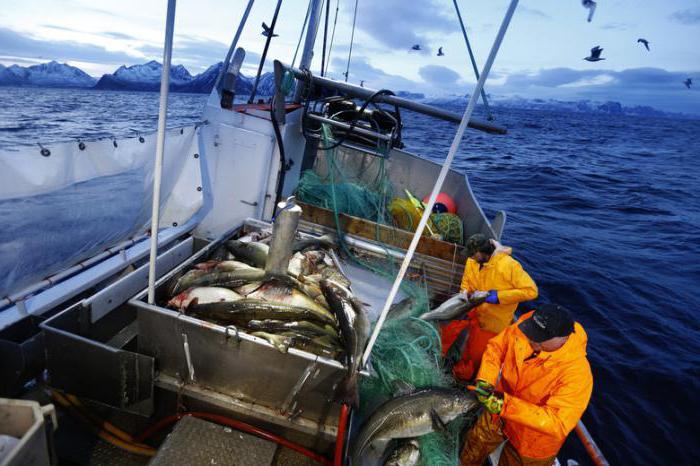
The largest and most current database of vacancies is collected on the Norwegian website of the Ministry of Labor. Another effective way to find a job is to visit the websites of companies in the northern kingdom. This opens up the opportunity for the applicant to send his resume directly to the employer. You can search for Norwegian companies through special Internet resources, for example gulesider.
And another option where you can find specific job offers are thematic forums and social networks. It is through them that the opportunity to communicate with experienced migrants and receive valuable advice is provided.
How to get an internship in Norway
It's not as difficult as it seems. You can do an internship at educational centers. Most often they offer to work in agricultural enterprises, in the restaurant and hotel industry, in trade and tourism. The applicant must meet a number of requirements:
- have a foreign passport;
- speak the language;
- submit a certificate from your place of study;
- have no health problems;
- attach a receipt for payment of the consular fee, visa fee and repayment of the cost of the program itself.
An internship in Norway is also provided as part of a joint cooperation agreement between our countries. The Union of Entrepreneurs of the Kingdom NHO and the Association of Local and Regional Authorities KS, on the initiative of the Ministry of Foreign Affairs, took responsibility for implementing a training program for those wishing to obtain higher education in Norway and undergo an internship in this country in companies such as Google, Shell, Yara, P&G, SEB and many others.
Basic visa documents
- Questionnaire.
- Foreign and Russian passports (copies of all pages).
- Color passport-sized photographs.
- Employment contract signed by the candidate and the Norwegian employer. Instead of this document, you are allowed to attach a completed job offer form. The contract clearly states: Place and terms of employment.
- Working hours.
- Salary amount (in Norwegian kroner).
- Various bonuses (for example, free accommodation and meals).
Thus, obtaining a visa and entering a European country is impossible without an agreement with the local employer.
Types of work permits in Norway and documents required to obtain them
Features of opening and running a business

Owning your own business is a great chance to get a residence permit. Before opening your business in Norway, you should decide on the organizational and legal form of the future company. You can create:
- enkeltmannsforetak – private enterprise (analogue of Russian individual entrepreneur);
- aksjeselskap – joint-stock company;
- аnsvarlig selskap and Selskap med delt ansvar – limited (total) liability companies.
You should study the laws of Norway to understand all the intricacies.
Company registration
When an entrepreneur decides to open a business, he needs to collect a package of documents. The main ones are: the charter, information about the office, information about the management, shareholders, secretary and accountant, then an extract from the Register of Companies of Norway. Registration lasts approximately 3 weeks, and in electronic form – 3-4 days. The future entrepreneur cannot be under 18 years of age and must have a residence permit in the country and an identification number.
Business immigration
Promising entrepreneurs (Russians, Ukrainians, Kazakhstanis) often decide to open their own business in Norway, since after registering a company in the Kingdom it is easy to obtain a residence permit.
You can open a business in the form of:
- private enterprise - the advantage of this option will be the speed of registration, the disadvantage is full liability for debts even after the liquidation of the company.
- responsible partnership - it is necessary to draw up statutory documents; liability for obligations can be joint and several (each member of the partnership is fully paid for the obligations of the company) or proportional (liability for the company’s debts is distributed in proportion to the shares contributed to the authorized capital).
- joint-stock company - the investments will be significant: at least 100 thousand Norwegian kroner will have to be contributed to the authorized capital alone. Only a subject of the Kingdom can manage your company, so you will have to spend money on paying him a monthly remuneration.
It is not easy to say which business will be profitable. Most of the goods sold here are imported, so trade is not highly profitable. The fish processing business is profitable, but it requires significant financial investments. Due to the increase in the number of visitors, all kinds of public events have begun to be in demand, so the number of entertainment centers, sports and gyms, and tourist complexes is growing in the Kingdom.
To be guaranteed a residence permit, you must provide the Norwegian Embassy with a certificate of your income for the past year and documents confirming your experience in the chosen field of business.
Unfortunately, the purchase of residential real estate does not give the right to permanent residence. However, in this way you can purchase a Schengen multiple visa, which is important for many businessmen.
Consequences of illegal employment
The kingdom takes employment very seriously. Reviews from people living and working in Norway for several years indicate that you should not agree to so-called menial work. It’s better to register with the police yourself and sign a contract where everything should be clearly stated. Registration of illegal immigrants threatens the Norwegian employer with fines and other troubles, including the closure of the company. The foreigner will be deported from the country with a ban on entry.
Read also: Life in Norway Immigration to Norway from Russia
Fines for illegal workers
The procedure for official employment and its high cost provoke certain groups of the population to obtain work through illegal means. The fine for migrants for such a violation will be 1,500 euros. For the employer – 1,600 euros for each case of violation of the law. Sanctions apply to all persons who helped illegally cross the border. The fine for them is 1,000 euros.
An illegal migrant also receives a restriction on entry into the country for a period of 5 years. The ban applies to all Schengen countries.


